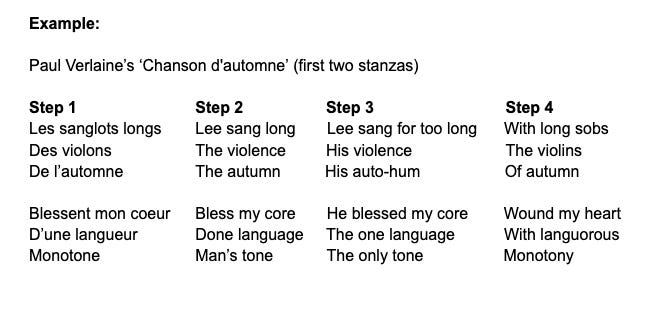May Events: Practiced Confusion
Writing and storytelling nights and the start of two new writing workshops
Hi friends,
It’s our one year Substack anniversary! Little Nights continues to grow and change and I’m grateful for everyone who keeps reading these emails and joining us at our events, workshops, and retreats.
If you’ve been coming more often (or plan to) you can also subscribe to our new paid benefits and get discounts on tickets and reserved seats at all our events.
We’re back this month with new writing events and our next open-mic storytelling night, this time to the theme of Losing.
We also have two new creative writing workshops starting in May and June made for writers of all levels of experience looking for feedback on pages and a little more structure in their writing life. Learn more and register or message me with any qs!
—Josh
Scroll for more info on each event and for May’s creative prompt.
The theme for May’s Storytelling Night is Losing.
At the end of the day we’re all losers—we lose our fear, our faith, our car keys, our wallet. You can lose the big game or your way in the woods. You can lose sleep or lose count or you can lose your inhibitions. You get the idea. Join us for a night of losing and tell us about a time it happened to you!
Artshack Cafe, Bed-Stuy
Wednesday, May 28th from 7-10pm
RSVP to learn more and reserve your seat!
Writing Events
This month we’re all over Brooklyn and downtown Manhattan, including a new Stage Dive, where a trio of performers tell stories that the audience uses as their writing inspiration.
Stage Dive @ Book Club Bar, East Village
Wednesday, May 7th from 8-10pm (RSVP)
We're also hosting three Drink 'N Drafts—
Word of Mouth, Crown Heights
Tuesday, May 13th from 7-9pm (RSVP)Book Club Bar, East Village
Wednesday, May 14th from 8-10pm (RSVP)Saturn Road, Cobble Hill
Tuesday, May 27th from 7:30-9:30pm (RSVP)
May’s Prompt
A lot of folks I meet at writing events or in classes have a hard time with poetry. Either they had to memorize sonnets in high school and decided poetry wasn’t for them, or whenever they do read poetry they feel so outside of it and not good enough, and why spend your one wild and precious life looking for more ways to feel not good enough?
One way forward, I think, is to increase our tolerance for confusion. Or, if not confusion, for not understanding. How can you practice staying engaged in what you’re reading (or writing) when you only understand 50% of it? 25%? 5%?
May’s prompt embraces that lack of understanding and makes it the whole point.
Homophonic Translations
Pick a poem that’s written using an alphabet you can pronounce, but in a language you don’t understand. Here’s a few Spanish poems to get you started (assuming you don’t speak Spanish).
Make a homophonic translation of this poem. That is, replace each word in the poem with the word that it sounds like in English. You can also replace each word with the word it reminds you of.
For example: The Portuguese word mulher may sound like the English word miller, or mule, but if I look at it quickly it also looks like mother. Use whatever word comes to you first.
Try to do step 2 relatively quickly. As your translated lines emerge, you may be tempted to continue the poem’s building logic and pick words that fit with what you’re writing instead of what the original poem sounds or looks the most like. If so, good! Do whatever your new poem wants. The original poem is your guide but your new poem is what matters.
Once you’ve completed your new poem, go back and edit it. Add new words, tweak tenses, or use it as the inspiration for a new poem altogether.
When it’s finished, find a translation of the original and put it and yours side by side.








